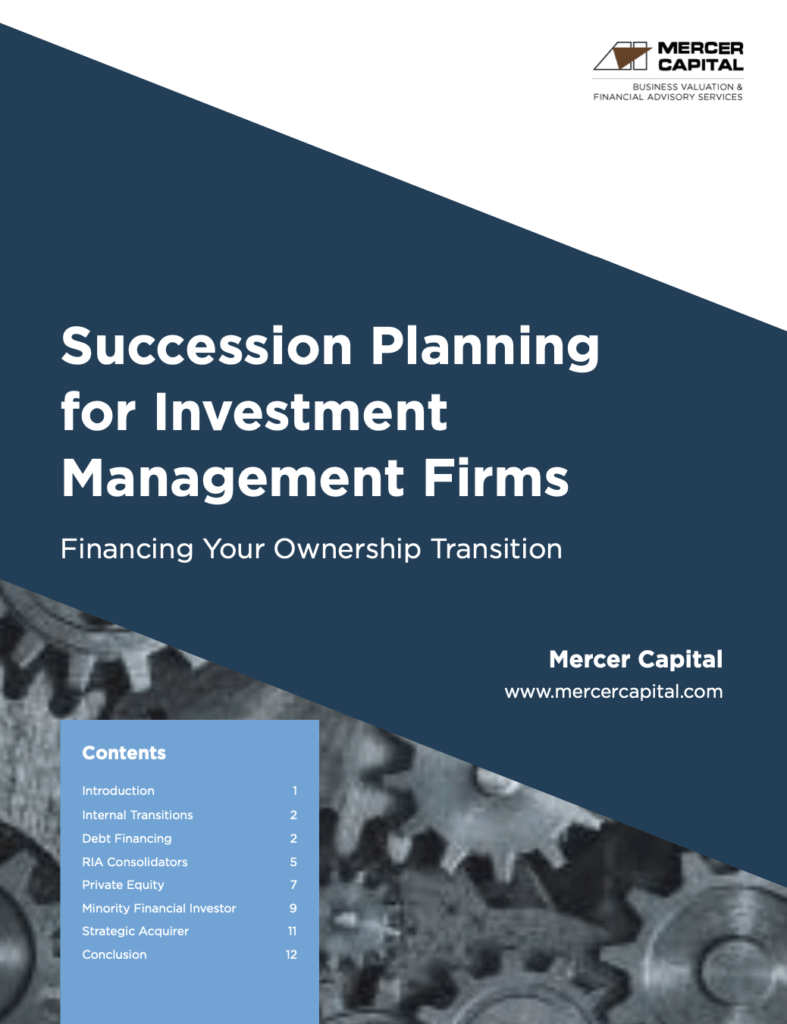Succession planning has been an area of increasing focus in the RIA industry, particularly given what many are calling a looming succession crisis. The demographics suggest that increased attention to succession planning is well warranted: a full 62% of RIAs are still led by their founders, and only about a quarter of them have non-founding shareholders. Yet when RIA principals were asked to rank their firm’s top priorities in 2019, developing a succession plan was ranked last. Fortunately, there are many viable options for RIA principals looking to exit the business.





